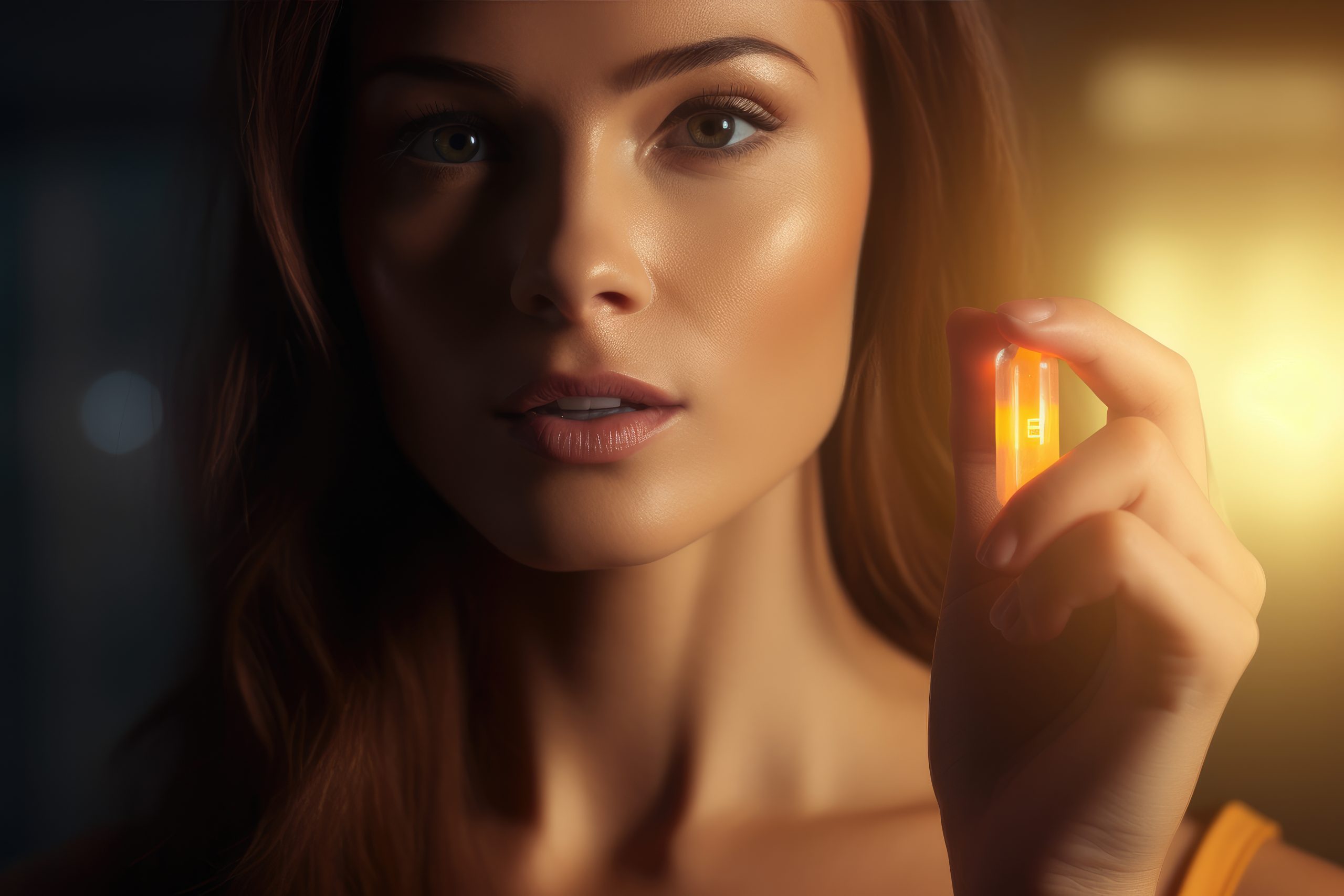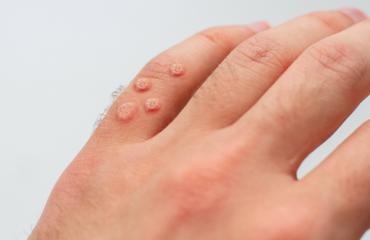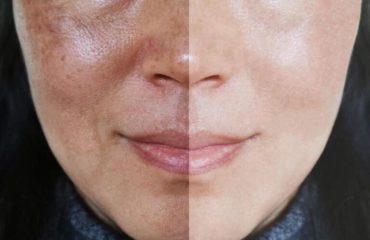Introduction to Biotin and Its Role in Hair Growth
Biotin, also known as vitamin B7 or vitamin H, is a water-soluble vitamin that plays a crucial role in maintaining healthy skin, nails, and hair. As part of the B-complex vitamin family, it aids in keratin production, which is a key protein component of hair strands. Given its fundamental role in hair structure, biotin has gained widespread attention as a supplement to combat hair thinning and promote growth.
Many women experiencing hair loss or slow hair growth turn to biotin supplements to restore volume and strength to their hair. But is biotin truly a miracle solution for hair growth? Are there any hidden side effects that females should be aware of before incorporating it into their daily routine?
As a dermatologist nurse practitioner, I will break down the real benefits and potential drawbacks of biotin, helping you make an informed decision.
Biotin’s Benefits for Hair Growth
1. Strengthens Hair and Reduces Breakage
Biotin enhances keratin infrastructure, making hair strands stronger, more elastic, and less prone to breakage. Regular biotin intake can help reduce hair shedding caused by weak and brittle strands.
2. Promotes Faster Hair Growth
For individuals with biotin deficiency, supplementing with biotin can significantly improve the rate of hair growth. Women struggling with slow hair growth may notice thicker, longer strands with regular biotin intake.
3. Enhances Hair Thickness and Volume
One of the most noticeable effects of biotin supplementation is increased hair volume. Many women who take biotin report that their hair appears fuller, with better texture and density.
4. Supports Scalp Health
A healthy scalp is vital for hair growth, and biotin plays an essential role in keeping the scalp nourished. It helps regulate sebaceous gland function, preventing excessive oiliness or dryness that can hinder hair growth.
5. Aids in Hair Restoration After Pregnancy
Postpartum hair loss is common due to hormonal fluctuations. Many women experience severe shedding after giving birth. Biotin can help speed up hair regrowth by stimulating hair follicles and reinforcing new hair strands.

6. May Reduce Hair Loss in Certain Medical Conditions
Conditions such as alopecia areata, androgenetic alopecia, and telogen effluvium may benefit from biotin supplementation when used in combination with other dermatological treatments. However, biotin alone may not be sufficient in advanced hair loss cases.
Hidden Side Effects of Biotin in Females
While biotin offers numerous hair benefits, excessive intake can lead to unexpected side effects. As a dermatologist nurse practitioner, I have seen several cases where biotin supplements have caused more harm than good.
1. Can Cause Acne and Skin Breakouts
High doses of biotin can lead to an imbalance in B vitamins, reducing vitamin B5 (pantothenic acid) levels, which helps regulate oil production in the skin. This can result in clogged pores, breakouts, and cystic acne, especially around the chin and jawline.
2. Alters Hormonal Balance
Although biotin is not directly linked to hormonal imbalances, it can affect endocrine function by influencing metabolic pathways. Some women have reported irregular menstrual cycles or hormonal acne flare-ups after prolonged use of high-dose biotin supplements.
3. Can Cause False Lab Test Results
One of the most overlooked dangers of biotin is its impact on blood test results. It can interfere with laboratory assays, leading to false thyroid function tests, incorrect cardiac markers, and misleading hormone levels. This is particularly concerning for women undergoing thyroid or fertility treatments.
4. May Trigger Allergic Reactions
Though rare, some women may develop allergic reactions to biotin supplements, experiencing symptoms such as itching, rashes, nausea, and difficulty breathing. If you notice any of these signs, discontinue use immediately and consult a healthcare provider.
5. Can Lead to Digestive Issues
Some females experience gastrointestinal discomfort, including bloating, cramps, and nausea, due to biotin supplementation. This is more common when taking high doses on an empty stomach.
6. May Not Work for Everyone
One crucial point to understand is that biotin supplementation only benefits those who are deficient in biotin. If your hair loss is due to genetics, hormonal issues (like PCOS or menopause), or autoimmune diseases, biotin alone may not be effective.
How to Use Biotin Safely for Hair Growth
To maximize the benefits while minimizing risks, here are some dermatologist-approved tips:
1. Determine If You Have a Biotin Deficiency
A biotin deficiency is rare since most people obtain enough from their diet. Signs of deficiency include:
- Brittle hair and nails
- Scaly, red rashes on the skin
- Depression or mood swings
- Numbness and tingling in hands and feet
If you suspect a deficiency, consult a doctor before starting supplementation.
2. Stick to Recommended Dosages
The recommended daily intake for biotin is:
- 30 mcg per day for adults
- Pregnant women: 30 mcg per day
- Breastfeeding women: 35 mcg per day
Many hair growth supplements contain 5,000 to 10,000 mcg of biotin, which is far beyond the required amount. Unless advised by a doctor, excessive doses should be avoided.
3. Choose Natural Dietary Sources Over Supplements
Biotin is found naturally in various foods, including:
- Egg yolks
- Salmon
- Almonds and walnuts
- Spinach and broccoli
- Sweet potatoes
- Dairy products

Eating a balanced diet rich in biotin-containing foods is safer than relying on supplements.
4. Stay Hydrated and Maintain Overall Nutrient Balance
Drinking enough water and maintaining a balanced intake of all B vitamins (especially vitamin B5) can help reduce side effects like acne and hormonal fluctuations.
5. Monitor for Side Effects
If you experience unexpected breakouts, digestive issues, or unusual symptoms, stop taking biotin and consult a dermatologist.
Biotin and Its Effects on Rosacea, Moles, and Skin Tags
Biotin is essential for healthy skin, but its effects can vary depending on individual skin conditions. For those with rosacea, excessive biotin intake may worsen redness and inflammation by increasing oil production and disrupting the skin barrier. While biotin does not directly cause moles or skin tags, it can accelerate skin cell turnover, potentially influencing the appearance or growth of existing lesions. Individuals with sensitive skin or pre-existing dermatological concerns should consult a dermatologist before incorporating high-dose biotin supplements into their routine.
Final Verdict: Is Biotin a Must-Have for Hair Growth?
As a dermatologist nurse practitioner, I recommend using biotin only when necessary. If you have a confirmed deficiency, biotin can significantly improve your hair health. However, for most women with normal biotin levels, excessive supplementation may not yield significant results and can even cause unwanted side effects.
Before starting biotin, consider alternative treatments for hair loss, such as:
- Scalp massage and essential oils
- Minoxidil (FDA-approved for hair growth)
- Hormonal therapy (for PCOS or menopause-related hair loss)
- Collagen peptides and omega-3 fatty acids for scalp health
Biotin is not a magic pill—it is a supportive nutrient that works best when used alongside a healthy diet and a well-rounded hair care routine.
If you are concerned about hair thinning, breakage, or hair loss, it’s best to consult a dermatologist for a personalized approach rather than relying solely on supplements.





Hello . I’m 65 yrs old and I’m losing my hair on my head bad . When I wash , comb or brush it . Plus I have sores on my scalp. My doctor just did blood work and everything came back normal. My doctor just started me on Biotin 10000 mg . Once a day . This problem with my hair is not due to hormones. As my body lacks hormones due to a full hesterkomy. Can you please remind a shampoo that will help my hair lost problem ? There has to be something otc that will help with this problem. Thank you so very much .